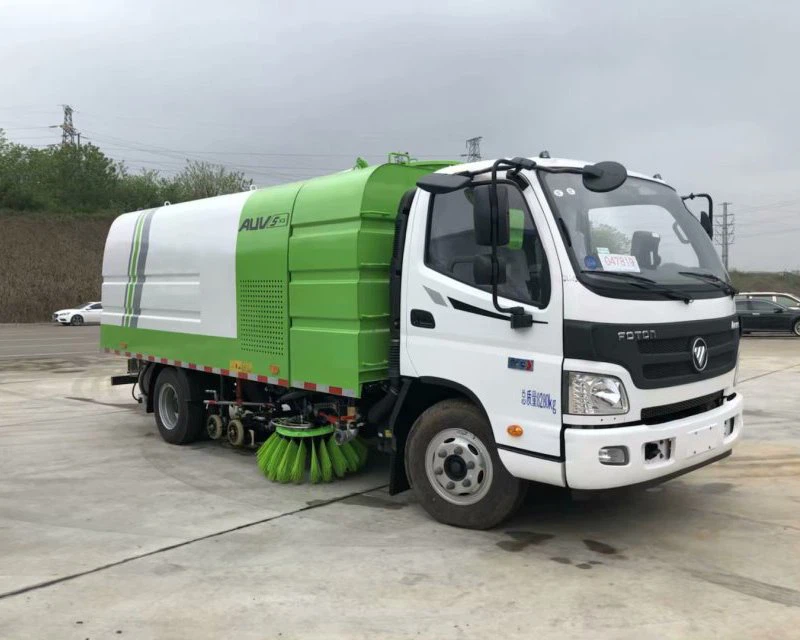Lube Service Truck: A Complete Guide to Maintenance on Wheels

Introduction
In the world of automotive maintenance, lube service trucks play an essential role in ensuring that vehicles stay in peak condition. As mobile maintenance units, they provide on-site lubrication services, making it convenient for fleet owners and individual vehicle users alike. This article will explore the various aspects of lube service trucks, their significance, operational features, and tips for choosing the right one for your needs. By the end, you’ll find yourself well-equipped with knowledge about this invaluable aspect of vehicle maintenance.
What is a Lube Service Truck?
A lube service truck is a specially designed vehicle equipped with everything necessary to perform lubrication and maintenance services on other vehicles. These trucks are ideal for fleets, construction sites, and remote work environments where traditional service stations may not be easily accessible.
Key Features of Lube Service Trucks

Lube service trucks are characterized by several key features:
- Tank for Lubricants: Most lube service trucks contain tanks that hold various types of lubricants such as motor oil, transmission fluid, and hydraulic fluid.
- Pumping Equipment: They are equipped with pumps that dispense the lubricants quickly and efficiently.
- Storage Space: Adequate storage is provided for other essential tools and equipment used in maintenance services.
- Mobility: The compact design allows them to navigate through tight spaces and travel to remote job sites.
Benefits of Using a Lube Service Truck
Utilizing a lube service truck offers numerous advantages:
1. Convenience
Lube service trucks bring the service directly to the vehicle, saving time and eliminating the need to visit a garage or service station.
2. Increased Efficiency
With quick service times and the ability to work on multiple vehicles in one location, businesses can maintain their fleets efficiently.
3. Cost-Effectiveness
Performing routine maintenance with a lube service truck can reduce downtime and prevent costly repairs, ultimately saving money in the long run.
4. Versatility
They can service a wide array of vehicles, from cars to heavy machinery, making them versatile assets for a range of industries.
Different Types of Lubricants Used
1. Engine Oil
Essential for lubrication in internal combustion engines, engine oil helps reduce friction and wear among moving parts.
2. Transmission Fluid
This lubricant protects transmission components from overheating and ensures smooth gear shifts.
3. Hydraulic Fluid
Used in various hydraulic systems, this fluid transmits power and lubricates working components.
4. Grease
Grease is utilized for parts that require a thicker lubricant, providing long-lasting protection against wear and tear.
Essential Equipment in a Lube Service Truck
| Equipment | Purpose |
|---|---|
| Tanks | Store different types of lubricants |
| Pumps | Dispense the lubricants with accuracy |
| Hand Tools | For various repairs and adjustments |
| Hoses | Deliver lubricants to specified locations |
| Pressure Gauges | Ensure optimal fluid levels |
Choosing the Right Lube Service Truck
Selecting the appropriate lube service truck requires careful consideration of various factors:
1. Size and Capacity
Evaluate the size based on how many vehicles you plan to service and the quantity of lubricants required.
2. Type of Equipment
Ensure the truck has the necessary equipment to serve your specific needs, such as pumping capacity and tank sizes.
3. Fuel Efficiency
Look for vehicles with good fuel efficiency to minimize operational costs during travel between service locations.
4. Modularity
Some trucks allow customization for specific services that may be required in your operations.
Starting a Lube Service Business
If you’re considering starting your own lube service business, here are some key steps to follow:
1. Business Plan
Create a detailed business plan outlining your target market, services offered, and financial forecasts.
2. Legal Requirements
Research and apply for necessary licenses and permits to operate a mobile service business.

3. Vehicle Selection
Choose a reliable lube service truck that suits your business needs.
4. Marketing
Develop a marketing strategy to reach your potential customers through online and offline channels.
Providing Quality Service
To ensure customer satisfaction and retain clients, maintaining a high standard of service is crucial:
1. Regular Training
Conduct regular training sessions for your staff to keep them updated on the latest techniques and safety practices.
2. Use Quality Products
Always use high-quality lubricants and equipment to enhance performance and reliability.
3. Schedule Follow-Up Services
Encouraging repeat business by following up with customers to remind them of their service schedules can foster loyalty.
Practical Examples of Lube Service Truck Operations
Example 1: Fleet Maintenance
A trucking company employs a lube service truck to maintain its fleet and ensure minimal downtime during operations by servicing vehicles at their parking lot instead of scheduling trips to distant service centers.
Example 2: Construction Sites
Construction companies utilizing heavy machinery on job sites can significantly benefit from lube service trucks, as they can provide on-site services, keeping machinery operational and efficient.

Case Studies: Successful Lube Service Operations
Case Study 1: ABC Transport LLC
A transport company implemented a lube service truck strategy, resulting in a 20% decrease in maintenance costs and a significant reduction in vehicle downtime.
Case Study 2: Construction Solutions Inc.
This construction company increased productivity by utilizing a lube service truck, which allowed workers to focus on operational tasks instead of carrying out lengthy maintenance procedures off-site.
FAQs about Lube Service Trucks
1. What types of vehicles can be serviced with a lube service truck?
Lube service trucks can service a variety of vehicles, including passenger cars, trucks, heavy machinery, and industrial equipment.
2. How often should I schedule lubrication services?
The frequency of lubrication services depends on the vehicle type, usage, and manufacturer recommendations, but generally, every 3,000 to 5,000 miles is advisable.
3. Are lube service trucks cost-effective?
Yes, they are typically cost-effective since they reduce downtime and can prevent costly mechanical failures through regular maintenance.
4. Is training necessary for using a lube service truck?
Yes, proper training is essential to ensure that maintenance technicians safely and effectively operate the equipment and perform services.
5. Can I customize my lube service truck?
Many service providers allow for customization options based on your service needs, like adding more tank capacity or specialized tools.
